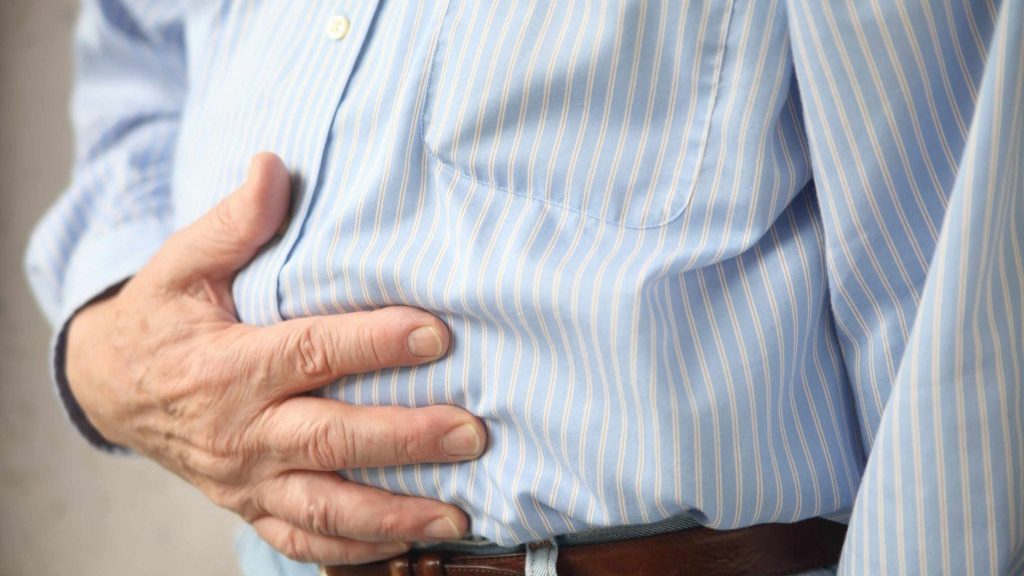-
Mayo Clinic Q and A: COVID-19 and gastrointestinal concerns

Dear Mayo Clinic: I've been hearing so much information about COVID-19 that I'm worried that every ache or pain may be related. I have been having stomachaches and then I began having diarrhea. I'm wondering if those are symptoms of COVID-19 and if I should get tested?
Answer: There is certainly a lot of information out there about the COVID-19 pandemic, which can be confusing. Every day it seems something new about the virus is being learned. While it can be concerning to have any feelings of illness right now as the COVID-19 pandemic is here, as a rule of thumb, if your stomach upset and diarrhea are new, changed from before, unusual or last more than a few days, it may be worthwhile to call your health care provider.
There has been a lot of emerging data about patients with COVID-19 who are experiencing gastrointestinal issues. At first, COVID-19 was described as primarily a respiratory disease that can trigger symptoms such as fever, cough, shortness of breath and difficulty breathing. In some severe cases, it can cause pneumonia.
We are still learning about the virus and reviewing studies to discern what gastrointestinal symptoms may be present with COVID-19.
Generally speaking, if you are a person with known digestive issues, right now there is no evidence that you would be at an increased risk for getting COVID-19. That said, there are certain groups of people who have an illness called common variable immunodeficiency, which predisposes them to getting more viral infections in the gut. Patients who have inflammatory bowel disease also are believed to be at a higher risk. These data are just coming out, though, and there is not enough information to say for certain.
Currently, the data that is being reviewed ― which are from small studies ― show that patients are presenting two ways: those who have concomitant gastrointestinal symptoms, meaning they have lung symptoms and gastrointestinal symptoms on top of that, and then about one-third of patients are presenting with just gastrointestinal symptoms and none of the respiratory symptoms.
The reported gastrointestinal symptoms predominantly are diarrhea, nausea and vomiting. We're also seeing loss of appetite, but that is a generic symptom that can happen with other illness and diseases, too. Some patients also may experience a loss of the sensation of smell and taste.
From two studies that have been published recently, which only had about 200 patients each, we understand that symptoms can present alone or during the course of the illness. It is unclear, though, if the symptoms are ultimately due to the illness, or if it may be due to some of the therapies that are given to treat COVID-19.
As far as testing, it is important for you to talk with your health care provider about your symptoms and if there is a need for testing. If you are experiencing the traditional respiratory COVID-19 symptoms and you also have gastrointestinal symptoms that may be potentially related, we can be a bit more certain of the connection if testing for COVID-19 is performed. Some centers in China ― in addition to the swab testing that can be performed in the respiratory tract with a nasal swab or a throat swab ― may have a stool test available. This is not readily available in the United States at this time, but researchers are working to make a validated stool test available.
Also, some of the gastrointestinal-related research findings are indicating the possibility of COVID-19 being present in the stool and maybe being absent in the respiratory tract. So this disease could be present in the stool first and then later on present in the respiratory tract. Though more information is required, we should probably assume for safety's sake that if somebody has been confirmed as having COVID-19, their stool, just like their respiratory secretions, is potentially transmittable and infectious.
Truly, hand-washing and maintaining strict hygiene is the cornerstone of preventing COVID-19. It's been suggested that you should wash your hands with soap and water, and do that for at least 20 seconds. Any alcohol-based hand rub that has more than 60 percent alcohol content also will be useful in cleaning your hands.
If you think your gastrointestinal upset might be related to food, try to keep a food diary and track any patterns. But if your gastrointestinal symptoms persist or worsen, don't hesitate to contact your health care provider. Obviously COVID-19 is garnering a lot of attention right now, but we would want to rule out any other potential issue, especially if you are not feeling better. ― Dr. Sahil Khanna, Gastroenterology, Mayo Clinic, Rochester, Minnesota
Information in this post was accurate at the time of its posting. Due to the fluid nature of the COVID-19 pandemic, scientific understanding along with guidelines and recommendations may have changed since the original publication date.
Check the Centers for Disease Control and Prevention website for additional updates on COVID-19. For more information and all your COVID-19 coverage, go to the Mayo Clinic News Network and mayoclinic.org.







